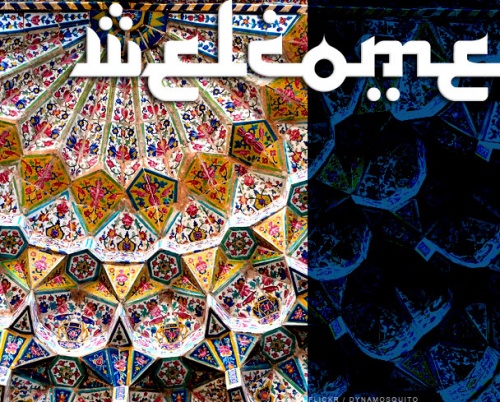-
Assalamu’alaikum Warohmatullohi Wabarakatuhu...
Bismillaahirrohmaanirrohiim ....
Polishing the Hearts
Imaam ibn al-Qayyim al-Jawziyyah (d.751 H), rahimahullaah 1
From al-Istiqaamah magazine
Allah - the Most High - said:
"O you who believe! Remember Allah and remember Him a lot." [Soorah al-Ahzaab 33:4I]."Those men and women who remember Allah a lot." [Soorah al-Ahzaab 33:35].
"So when you have finished the rights of your Pilgrimage, then remember Allah as you remember your fore-father, or with more intense remembrance." [Soorah al-Baqarah 2:200].
These verses contain a command to remember Allah intensely and abundantly, since the worshipper is in dire need of [remembering Allah] and cannot do without it even for a twinkling of an eye. This is because every moment that a person does not spend in the dhikr (remembrance) of Allah will not be of any benefit to him. Rather, the harm entailed in being neglectful of the dhikr of Allah is far greater than any benefits that can be gained. One of the 'aarifeen (those who are knowledgeable about Allah) said:"If a person were to spend such and such number of years engaged [in the dhikr of Allah], then he turns away from it for just a moment, what he will lose is far greater than whatever he has already gained."
Al-Bayhaqee relates from 'Aaishah radiallaahu 'anhaa that the Prophet sallallaahu 'alayhi wa sallam said: "There is no time in which the son of Aadam does not remember AIIaah in it, except that it will be a source of regret for him on the Day of Judgement" 2
Mu'aadh ibn jabal radiallaahu 'anhu relates that the Prophet sallallaahu 'alayhi wa sallam said: "The people of Paradise will not have any regrets except for those moments in which they were not engaged in the dhikr (remembrance) of Allah." 3
Mu'aadh ibn Jabal also relates that Allaah's Messenger sallallaahu 'alayhi wa sallam was asked: What action is the most beloved to Allah? So he replied: "That you continue to keep your tongue moist with the dhikr of Allah, until you die." 4
POLISHING THE HEART
Abu Dardaa radiallaahu 'anhu said:"For everything there is a polish and the polish for the heart is the dhikr of Allah".
Al-Bayhaqee relates from Ibn 'Umar radiallaahu 'anhu that AlIaah's Messenger sallallaahu 'alayhi wa sallam said: "For everything there is a polish, and the polish for the hearts is the dhikr (remembrance) of Allah. There is nothing more potent in saving a person from the punishment of Allah than the dhikr of Allah." It was said: Not even Jihaad in the path of Allah. So he replied: "Not even if you were to continue striking with your sword until it breaks."5
There is no doubt that hearts becomes rusty just as copper and silver coins become rusty. The polish for [this rust] is the dhikr of AIlaah. This is because [dhikr] is like a polish [which polishes the heart] like a shiny mirror. When dhikr is left, the rust returns. But when dhikr resumes, then the heart is [again] polished. And hearts become rusty due to two things:-
(i) neglecting remembering Allah, and
(ii) committing sins.
The polish for these two things is:-
(i) seeking Allaah's forgiveness and
(ii) dhikr.
CONFUSING TRUTH WITH FALSEHOOD
Whoever neglects [remembering Allah] most of the time, then his heart will become rusty in accordance with how neglectful the person is. And when this [filthy] rust accumulates on the heart, then it no longer recognises things as they really are. Thus, it views falsehood as if it is the truth, and truth as if it is falsehood.
This is because this rust darkens and confuses the heart's perception, and so it is unable to truly recognise things for what they really are. So as the rust accumulates, the heart gets blackened, and as this happens the heart becomes stained with this filthy rust, and when this occurs it corrupts the heart's perception and recognition of things.
The heart [then] does not accept the truth nor does it reject falsehood, and this is the greatest calamity that can strike the heart. Being neglectful [of dhikr] and following of whims and desires is a direct consequence of such a heart, which [further] extinguish the heart's light and blinds its vision.
Allah - the Most High - said:
"And do not obey him whose heart We have made to be neglectful of Our remembrance, one who follows his own whims and desires and whose affairs are furat [have gone beyond bounds and whose deeds have been lost]." [Soorah al-Kahf 18:28].QUALITIES OF A GUIDE
So when a worshipper desires to follow another person, then let him see: Is this person from the people of dhikr, or from the people who are negligent [about remembering Allah]? Does this person judge in accordance with his whims and desires, or by the Revelation? So, if he judges by whims and desires then he is actually from those people who are negligent; those whose affairs have gone beyond bounds and whose deeds are lost.
The term furat [which occurs in the above verse] has been explained in many ways. It has been explained to mean:- (i) losing the rewards of that type of action which is essential to do, and in which lies success and happiness; (ii) exceeding the limits of something; (iii) being destroyed; and (iv) opposing the truth. Each of these sayings are very close in meaning to each other.
The point is that Allah - the One free from all imperfections, the Most High - has prohibited following all those who possess such attributes. So it is absolutely essential that a person considers whether such attributes are found in his shaykh, or the person who's example he follows, or the person that he obeys. If they are, then he should distance himself from such a person.
However, if it is found that the person is, in most cases, pre-occupied with the dhikr of Allah and with following the Sunnah, and his affairs do not exceed the limits, but rather he is judicious and resolute in his affairs, then he should cling to him very firmly.
Indeed, there is no difference between the living and the dead, except with the dhikr of Allah; since [the Prophet sallallaahu 'alayhi wa sallam] said: "The example of one who remembers Allah and someone who does not, is like the example between the living and the dead."6
FOOTNOTES
1. AI-Waabilus-Sayyib min Kalimit-Tayyib (pp.78-82).
2. Hasan: Related by Abu Nu'aym in al-Hiliyatul-Awliyaa (51361-362). It was authenticated by Shaykh al-Albaanee in Saheehul-Jaami' (no.5720).
3. Saheeh: Related by lbnus-Sunnee in 'Aml al-Yawma wal-Laylah (no.3). Refer to Saheehul-Jaami' (no.5446).
4. Hasan: Related by lbn Hibbaan (no.2318). It was authenticated by Shaykh Saleem al-Hilaalee in Saheeh al-Waabilus-Sayyib (p.80).
5. Saheeh: Related by Ahmad (4/352), from Mu'aadh ibn Jabal radiallaahu 'anhu. It was authenticated by al-Albaanee in Saheehul-Jaami' (no.5644).
6. Related by al-Bukhaaree (11/208) and Muslim (1/539).
http://www.missionislam.com/knowledge/polishingheart.html
 your comment
your comment
-
“As-salámu ‘alaikum wa rahmatul láhi wa barakátuh!”
Bismillah Ar Rahman Ar Raheem
SHUKR
Thankfulness, gratitude. The twin of Sabr.
-As there is sabr in times of ni'mah, there is shukr as well.
- Quran: Nay, indeed it is Allah should you show ubudiyyah to, and show to Him gratitude.
- Quran: O you who believe, use of that which is good of what We have provided for you, and be grateful to Allah if you are truly ibaad.
- Quran: And if you show gratefulness, I will give you more.
- Quran: (shaytan says after being granted respite by Allah) I will come to them, from in front of them and from behind them, from their right and their left, and You will find most of them ungrateful.
- Hadeeth: O Mu'adh, I love you. Let me teach you something.. ( the duah at end of salah) Allahumma a'innee ala dhikrikah, wa shukrukah, wa hussni ibadatik.. ( Ya Allah help me to remember You, to show shukr to You, and to make the most beautiful of ibdadah)
- Rasulullah (saws) used to stand up nights in qiyamul-layl every night to the extent his feet swelled. Aisha (ra) asked him, why do you do this when Allah has already forgiven you everything before and everything after? He (saws) said: Then shall I not be a grateful 'abd (servant)?
("and we're too busy for this! Rasulullah saws was a busy man, wasn't he? Didn't he have important things to do? Yet He made qiyamul layl every night. But of course, we have school, or work, and we can't be tired for that. What are our priorities? Being strong and energetic in front of your boss, or being content and pleasing in front of Allah?)
- the more one has, the more one should fear, be scared and humble: Will I be able to show enough shukr for all that I have?
Shukr is to be shown in three ways:
(1): Shukru bil qalb: shukr of the heart. achieved by harboring and intending good for all of Allah's creation. (khayr meaning something pleasing to Allah swt)
(2): Shukru bil leesan: shukr of the tongue. celebrate with the tongue the praises of Allah (swt), Alhamdulillah = showing the world I am pleased with my Lord. Quran: As to the ni'mah of your Lord, celebrate it.
(3): Shukr bil jawaarih: shukr of the external senses. (amal, actions) everytime Allah gives us a ni'mah, we must use that ni'mah the way it was intended to be used by our Creator- and thus used in the way of His obedience, and not in the way of His disobedience.
- kuffr an- na'mah: rejection of Allah's ni'mah "There are divine words written on the pages of every ni'mah. But those words are not deciphered by everyone."
ex. Using the tongue in a harmful way is kuffran of ni'matul leesan ex. Using the eyes to look at things that are haraam is kuffran of the ni'mah of the eyes. ex. dressing inappropriately is kufrran of the ni'mah of our body ex. Using the intellect for the wrong type of knowledge, is kuffran as well.
Any ilm that does not bring us closer to Allah, is wrong. Rasulullah (saws) sought refuge in Allah from information that was not beneficial.
- Quran: If you were to count the ni'mah of Allah, you would not be able to ennumerate them. Verily Man is an ungrateful creature.
- How do we know what Allah wants us to do with this ni'mah? Ulamah says there are two ways:
1) a. What sharh' (Islamic law) teaches of the ni'mah or action b. seek help from the people of ilm (ijtihaad)
2) ali'tibaar- cotemplation, using the faculties we have been endowed with, with of course ilm and wisdom.
- Why does the universe exist in relation to us? (In relationship to itself, it exists to fulfill ubudiyyah to Allah, as is everything that has been created by Allah) No usul to Allah can exist without mahabba (love for Him), and you will not have hubb for Allah if you are not consistent in reflection of Allah (His attributes) and how they relate to the signs of Allah in His creation and bounties. Universe is made to reflect on the ni'im of Allah to gain hub for Allah (in relation to us).
Shukr + Sabr + Tawbaah = ingredients for happiness
-showing sabr in the ni'mah of Allah is shukr (by not transgressing the bounds set down by Allah)
some duah mentioned:
- In response to 'how are you?': "I celebrate the praises of my Lord to you and the rest of creation. Surely with my Lord I am pleased."
- In mornings and evenings: "Ya Allah whatever bounty has been my share and the bounty of the rest of creation has been from You and You alone; and I celebrate Your praise."
-For morning: "Ya Allah I woke up this morning having You, and the angels who carry Your throne, and all angels, and all of Your creation, witness that You are the One and Only God, and Muhammad is your messenger."
- Ni'mah is everything we like that happens to us, but there is one real ni'mah, the ni'mah of all ni'mahs: JANNAH Every other ni'mah are means to that end.
- Why is Jannah the only true, real ni'mah? Because of 4 things (all other ni'mah violate one of them):
1) eternal life without death - every other ni'mah is mortal
2) immortality with happiness - every happiness of dunyaa has moments of displeasure, grief, consequences.
3) ni'mah of knowlege - everyone, no matter how knowledgeable, has moments of ignorance, happiness of akhirah is ilm without jahil
4) wealth never tainted by moments of poverty and need.
- There are 4 types of ni'mah:
1) things that happen to us (nafiyyah) that are beneficial in the short term and the long: The pure ni'mah, beneficial in dunyaa and akhirah. ex. ilm in quran and sunnah, hussnul akhlaaq (good conduct).. These lead to pleasure in dunyaa and akhirah.
2) something harmful in both dunyaa and akhirah. ex. nifaaq
3) something beneficial to us now (dunyaa) but harmful to us in akhirah, considered a blessing by the ignorant, a calamity by the believers, a harm in disguise of benefit.
4) something harmful in the immediate future, but in the long run beneficial
-Before shukr, we need to know how to use Allah's ni'mah in the way He loves, by revealation, shari' ilm, sunnah, quran..
- People lack shukr for mainly two reasons, jahil (ignorance), and ghaffil (heedlesness, carelesness, also a form of jahil).
-kuffrun-na'mah - rejection of Allah's ni'mah. To prevent this: reflect on this world, ilm, amal, isit the hospitals to see Allah's nimah on you, visit the prisons, visit the graveyards.
The dead WISH for two rakah.
-If we are not thankful to Allah for a ni'mah, it will be taken away from us, if taken away, it is rarely returned.
- al-balaa: the opposite of ni'mah, a hardship, something we don't like. For ni'mah we show shukr, for balaa we show sabr. but a balaa to others might be a ni'mah to me. ex. jahil of how when and where we die- in this case it is a good thing because if we knew anxiety would be too much, so its a balaah of which I should show shukr. another ex. not knowing what other creatures are harboring of hate, conspiracies, and intent to harm, we would be concerned with these people everyday. ex. we don't know when duah is accepted on yawmul jummah (therefore we make duah throughout, a good thing) Every balaah should be looked at as a na'mah. It's all relative!
Umar (ra): There are four balaah for which I must be shakir:
1- the calamity is not in my deen. (ex. a criminal breaks into your house and steals your stuff. say alhamdulillah, because you should be thankful that shatan did not enter your heart and steal your eman.)
2- It could have been worse, bigger, and Allah has power over all things.
3- I am pleased with what Allah (swt) wanted to afflict me with. In my heart I am still satisfied, I am not stricken with discontent.
4- Every affliction is atonement for my sins.
"Let us embark together on this journey of knowledge.." (he just _says_ stuff like that, naturally)
- A recipe for disaster: Of the reasons of taking the avenues of destruction in this life and the hereafter: to love life, the heart feels serene and at ease in dunyaa.
- A recipe for success: Of the reasons of happiness in dunyaa and akhirah: the heart is restless and uneasy in dunyaa ( balaa' helps this)
- Then should we pray for balaa'?
NO! Rasulullah (saws) found someone doing that and said "Do not do that, do not do that, do not do that!" Hadeeth: Seek refuge in Allah from 4 things: from the exertion and affront of affliction, that one lives to reach a life of misery, from the harmful decree of affliction, and from the deceptive ways of the clans of the enemy. (ie we seek refuge in Allah from balaah, we do not ask him for it)
- Which is better, shukr or sabr?
We can't say, it is dependant upon what level of shukr or sabr it is. (ex. a man indulges in everything that is halaal, or one who uses that wealth in every way to get closer to Allah, the second is a higher level than the first)
- These are the keys to the treasure of happiness.
- Without these two wings of shukr and sabr, we cannot fly to happiness.
- Shukr is a fruit of being aware and conscious of Allah's bounty.
- Sabr is a fruit of being away of our own weaknesses, ignorance, transgressions, inadequacies and ugliness of the self.
The shortest path to Allah is the path of an 'abd. The thickest of veils between Allah and the 'abd is ad'daawaah (feeling of arrogance, deserving)
Ya Allah, make us of those who listen to the words of admonition and follow the best of them. Ya Allah, forgive us our sins, and grant us Your mercy.
Allahumma inne ala dhikrikah, wa shukrikah, wa hussni ibadaatik.
AMEEN!
http://www.jannah.org/articles/shukr.html
 your comment
your comment
-
Asalamu'aleykum warahmatulahi wabarakatu
Bismillahi Rahmani Rahiim,
Seeking Guidance
* "Who created me, and it is He Who guides me; (Qur'an 26: 78)
Al-Ladhī Khalaqanī Fahuwa Yahdīni
-----------
* Unless my Lord guide me, I shall surely be among those who go astray." (Qur'an 06:77)
La'in Lam Yahdinī Rabbī La'akūnanna Mina Al-Qawmi Ađ-Đāllīna
------------
* "I do hope that my Lord will show me the smooth and straight Path." (Qur'an 28:22)
Asá Rabbī 'An Yahdiyanī Sawā'a As-Sabīl
------------
* "Our Lord! bestow on us Mercy from Thyself, and dispose of our affair for us in the right way!" (Qur'an 18:10)
Rabbanā 'Ātinā Min Ladunka Raĥmatan Wa Hayyi' Lanā Min 'Amrinā Rashadāan
------------
* "Our Lord!" (they say), "Let not our hearts deviate now after Thou hast guided us, but grant us mercy from Thine own Presence; for Thou art the Grantor of bounties without measure. (Qur'an 03:08)
Rabbanā Lā Tuzigh Qulūbanā Ba`da 'Idh Hadaytanā Wa Hab Lanā Min Ladunka Raĥmatan 'Innaka 'Anta Al-Wahhābu
-----------
* "Our Lord! send us not to the company of the wrong- doers." (Qur'an 07:47)
Rabbanā Lā Taj`alnā Ma`a Al-Qawmi Až-Žālimīna------------
http://www.luvu4luv.com/Guidance.html
========================================
Seeking Knowledge and Wisdom
* O my lord! Advance me in knowledge (Qur'an 20:114)
Waqur - rabbi- zidni- ilma
---------------
* O my Lord! bestow wisdom on me, and join me with the righteous (Qur'an 26:83, Prayer of prophet Ibrahim)
Rabi - habli - Hukmaw - wa'alhiqni- Bissaliheenhttp://www.luvu4luv.com/Knowledge_Prayers.html
===================================
 your comment
your comment
-
Asalamu'aleykum warahmatulahi wabarakatu
Bismillahi Rahmani Rahiim,Faith (Imaan) Dua's

039.011 Say: "Verily, I am commanded to serve ALLAH with sincere devotion;
Qul 'Innī 'Umirtu 'An 'A`buda Allāha Mukhlişāan Lahu Ad-Dīna
-----------
039.012 "And I am commanded to be the first of those who bow to ALLAH in Islam."
Wa 'Umirtu Li'n 'Akūna 'Awwala Al- Muslimīna
----------
003.053 "Our Lord! we believe in what Thou hast revealed, and we follow the Apostle; then write us down among those who bear witness."
Rabbanā 'Āmannā Bimā 'Anzalta Wa Attaba`nā Ar-Rasūla Fāktubnā Ma`a Ash-Shāhidīna
----------
018.014 "Our Lord is the Lord of the heavens and of the earth: never shall we call upon any god other than Him: if we did, we should indeed have uttered an enormity!
Rabbunā Rabbu As-Samāwāti Wa Al-'Arđi Lan Nad`uwa Min Dūnihi 'Ilahāan Laqad Qulnā 'Idhāan Shaţaţāan
---------
005.111 'We have faith, and do thou bear witness that we bow to Allah as Muslims'.
Āmannā Wa Ash/had Bi'annanā Muslimūna
----------
012.108 Say thou: "This is my way: I do invite unto ALLAH,- on evidence clear as the seeing with one's eyes,- I and whoever follows me. Glory to ALLAH! and never will I join
gods with ALLAH!"
Qul Hadhihi Sabīlī 'Ad`ū 'Ilá Allāhi `Alá Başīratin 'Anā Wa Mani Attaba`anī Wa Subĥāna Allāhi Wa Mā 'Anā Mina Al-Mushrikīna
---------
002.139 Say: Will ye dispute with us about ALLAH, seeing that He is our Lord and your Lord; that we are responsible for our doings and ye for yours; and that We are sincere
(in our faith) in Him?
Qul 'Atuĥājjūnanā Fī Allāhi Wa Huwa Rabbunā Wa Rabbukum Wa Lanā 'A`mālunā Wa Lakum 'A`mālukum Wa Naĥnu Lahu Mukhlişūna---------
http://www.luvu4luv.com/Prayer_Faith.html
-------------------
 your comment
your comment
-
Asalamu'aleykum warahmatulahi wabarakatu
Bismillahi Rahmani Rahiim,Dua's for Family

Audio Recitation (Will play Full Ayah) 21:89 "O my Lord! leave me not without offspring, though thou art the best of inheritors."
Rabbi Lā Tadharnī Fardāan Wa 'Anta Khayru Al-Wārithīna
------
37:100 "O my Lord! Grant me a righteous (son)!"
Rabbi Hab Lī Mina Aş-Şāliĥīna
-------
3:38 "O my Lord! Grant unto me from Thee a progeny that is pure: for Thou art He that heareth prayer!
Rabbi Hab Lī Min Ladunka Dhurrīyatan Ţayyibatan 'Innaka Samī`u Ad-Du`ā'i
--------
25:74 "Our Lord! Grant unto us wives and offspring who will be the comfort of our eyes, and give us (the grace) to lead the righteous."
Rabbana Hab Lanā Min 'Azwājinā Wa Dhurrīyātinā Qurrata 'A`yunin Wa Aj`alnā Lilmuttaqīna 'Imāmāan
--------
2:128 "Our Lord! make of us Muslims, bowing to Thy (Will), and of our progeny a people Muslim, bowing to Thy (will); and show us our place for the celebration of (due) rites; and turn unto us (in Mercy); for Thou art the Oft-Returning, Most Merciful.
Rabbanā Wa Aj`alnā Muslimayni Laka Wa Min Dhurrīyatinā 'Ummatan Muslimatan Laka Wa 'Arinā Manāsikanā Wa Tub `Alaynā 'Innaka 'Anta At-Tawwābu Ar-Raĥīmu
----------
14:40 "O my Lord! make me one who establishes regular Prayer, and also (raise such) among my offspring O our Lord! and accept Thou my Prayer."
Rabbi Aj`alnī Muqīma Aş-Şalāati Wa Min Dhurrīyatī Rabbanā Wa Taqabbal Du`ā'i
----------
14:41 "O our Lord! cover (us) with Thy Forgiveness - me, my parents, and (all) Believers, on the Day that the Reckoning will be established!
Rabbanā Aghfir Lī Wa Liwālidayya Wa Lilmu'uminīna Yawma Yaqūmu Al-Ĥisābu
----------
46:15 "O my Lord! Grant me that I may be grateful for Thy favour which Thou has bestowed upon me, and upon both my parents, and that I may work righteousness such as
Thou mayest approve; and be gracious to me in my issue. Truly have I turned to Thee and truly do I bow (to Thee) in Islam."
Rabbi 'Awzi`nī 'An 'Ashkura Ni`mataka Allatī 'An`amta `Alayya Wa `Alá Wa A-Dayya Wa 'An 'A`mala Şāliĥāan Tarđāhu Wa 'Aşliĥ Lī Fī Dhurrīyatī 'Innī Tubtu 'Ilayka Wa
'Innī Mina Al-Muslimīna
---------
17:24 And, out of kindness, lower to them the wing of humility, and say:
"My Lord! bestow on them thy Mercy even as they cherished me in childhood."
Rabbi Arĥamhumā Kamā Rabbayānī Şaghīrāan
---------
71:28 "O my Lord! Forgive me, my parents, all who enter my house in Faith, and (all) believing men and believing women: and to the wrong-doers grant Thou no increase but in perdition!"
Rabbi Aghfir Lī Wa Liwālidayya Wa Liman Dakhala Baytiya Mu'umināan Wa Lilmu'uminīna Wa Al-Mu'umināti Wa Lā Tazidi Až-Žālimīna 'Illā Tabārāan--------
http://www.luvu4luv.com/Prayer_family.html
 your comment
your comment
Bismillahir Rahmanir Raheem, All Praise is due to Alláh.




















